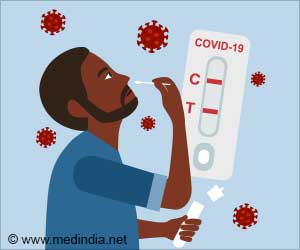All these people also had longitudinal clinical data, quantitative neuropathology data, and rich genetic and molecular profiling of their brain tissues. Using a series of studies, the human stem cells were turned into brain cells.
‘Rate of cognitive decline especially the understanding of Alzheimers disease (AD) on an individualized level can now be predicted using a newly developed brain model by scientists.’
Molecular Profile of Cognitive Decline
It was found that specific forms of amyloid beta-protein (Aβ) and tau protein were associated with cognitive decline and AD. This uncovered signaling pathways that influence the production of these toxic species.
“We are finding that different genetic backgrounds in humans generate different profiles of Aβ and tau. Those stem cell derived neuronal profiles have a predictive nature, in terms of the clinical outcome of an individual’s Alzheimer’s disease. This large set of human cell lines from AD and cognitively normal people provide the scientific community with a powerful experimental system for untangling why some people develop AD and others do not” says Tracy Young-Pearse, Ph.D., of the Brigham’s Division of Neurology.
Thus by looking at the cell culture samples of these people and the Aβ and tau profiles, the team was able to predict the cognitive decline and AD development in that person.
Efficacy of Drug
With such promising data, the team also is exploring if the stem cell-derived neurons can be used to predict whether drugs like Aducanumab, a new Alzheimer’s drug recently approved by the Food and Drug Administration, will be more effective in specific groups of AD patients.
“The new Alzheimer’s drug is an antibody that recognizes Aβ and clears it from the brain. Our work shows that different genetic backgrounds of human neurons produce different profiles of Aβ. What our system provides is a platform to test who might be responsive to different AD therapeutics, for example, anti-Aβ and anti-tau immunotherapeutics. This will be important because neurons from different individuals produce different profiles of Aβ and tau, and different antibody cocktails may be more effective against one profile over another,” says Young-Pearse.
The study thereby conveys that Alzheimer’s is usually not caused by a single genetic mutation but with different sets of genes contributing to risk across different people. This mandates tailored treatments of the disease.
Source: Medindia



